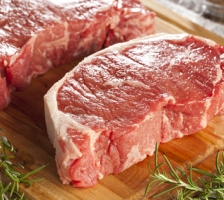
Sources Of Carnitine
Carnitine is key in burning long-chain fatty acids for energy. Carnitine helps speed up the time it takes for fatty acids to get into the muscles to be burnt for energy. Carnitine is therefore a powerful aid in weight training, physical activities and fat burning. Although Carnitine is found in everyday foods many people may be under-consuming the amount necessary for it to have an impact on their training efforts. It is therefore important to understand which sources of Carnitine you are currently consuming and if additional dietary supplementation with carntine may be beneficial.
Naturally Occurring Carnitine
Humans can synthesise Carnitine from within the body as well as from dietary sources. However, naturally occurring Carnitine is extremely limited and needs to be supplemented by our diets. It is therefore important to consume additional sources of Carnitine so that it can be absorbed through the intestine.
The body can also synthesize Carnitine in the liver by combining amino acids. If the Carnitine is not immediately used by tissues within the body it is stored. The body can store Carnitine in the skeletal muscles, heart, brain and sperm.
Carnitine in Your Diet
As Carnitine is predominantly found in skeletal muscles, animal products are the best source. Carnitine is particularly abundant in red meat, and in particular lamb. Carnitine is also found in lesser amounts in the likes of poultry and fish. Animal milk (from cows in particular) is a good source of Carnitine. Nuts and seeds, wheat, asparagus and avocados are all also good sources of dietary Carnitine. It is therefore possible to get a good supply of Carnitine through our normal diets.
Carnitine Supplements
Whilst Carnitine may be naturally occurring in many foods, it may be necessary to supplement your consumption. Many people may therefore look to a Carnitine supplement to boost their levels. The extra Carnitine consumption may then help you reach your training and physique goals. One of the most bioavailable and effective forms of Carnitine is thought to be N-Acetyl L Carnitine.
Sources of Carnitine
Carnitine is widely available in many foods and in particular red meat. It is also possible to find dietary Carnitine in a vegetarians diet in foods such as animal milk and nuts. For many however their Carnitine consumption is not sufficient enough to have an impact on their training. It may therefore be beneficial to take a Carnitine supplement to boost levels and in turn performance.







No Comments yet!